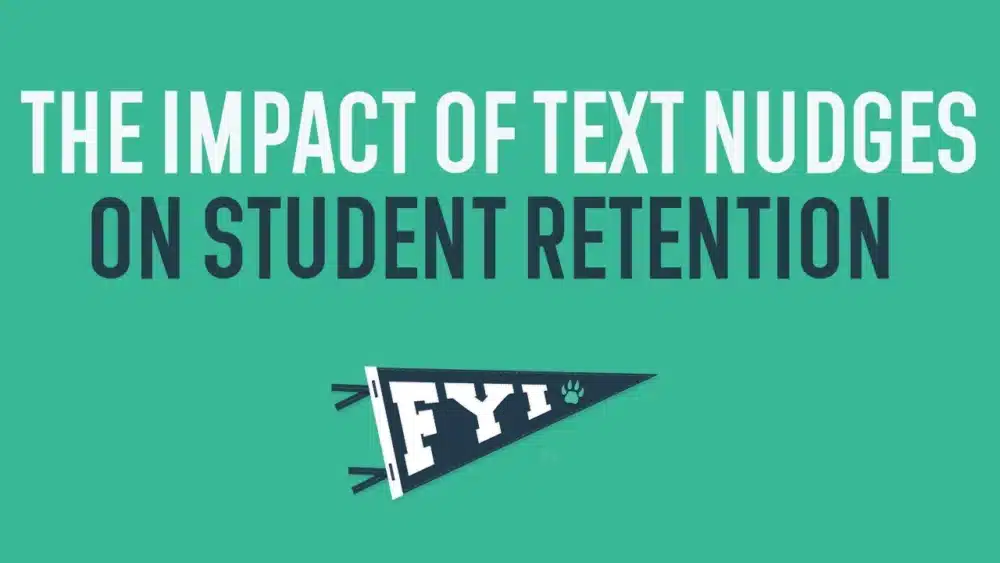Impact of Text Nudges on Retention and Success

Our FYI host with the most, Gil Rogers, sits down with Dr. Ann Lyn Hall, CEO of Prosperity Works. They discuss the economic impact a degree has on not only the student but their families as well. The two also dive into research Ann Lyn has done on what higher education staff can predict when they send strategic text nudges to their students and how the timing of those nudges has a significant impact.
WHO IS GIL ROGERS?
Gil brings more than two decades of higher education experience to guide our guests into sharing their expertise.
When he’s not playing FYI host or ed-tech marketing guru, you can find him on the bench coaching his son’s youth hockey and baseball teams or exploring the North Woods of Maine with his wife, kids, and dog, Buttercup.
WHO IS ANN LYN HALL?
Bringing 19 years of higher ed experience, Dr. Ann Lyn Hall is the CEO of Prosperity Works, a nonprofit organization that focuses on the economic prosperity of earning a degree. Prosperity Works supports individuals in getting their degrees through a matched savings account. If a student saves up to $1,000, Prosperity Works matches it with $4,000. The student can then use that money on tuition, books, or a computer.
Before shifting into the nonprofit world, Ann Lyn also researched how higher education can create relationships between staff and faculty with students to improve retention.
“I’ve always been interested in behavior change, so I wanted to know how to help individuals do the thing they really want to do in the easiest way possible,” says Ann Lyn.
When she’s not discussing texting best practices, you can find her being a mom to her six-year-old and a new kitten at home.
IN THIS EPISODE…
Gil and Ann Lyn discuss a wide range of topics, including economic mobility related to higher education outcomes as well as Ann Lyn’s research on the impact of text message nudges on student retention.
“We see higher ed and a degree as an asset for families to use to propel themselves forward,” says Ann Lyn. “A degree is something no one can take away from you; it’s something that you earn.”
Ann Lyn and Prosperity Works see that finances are a significant barrier to accessing higher ed and earning a college degree, especially for low-income students. She also notes the impact having a parent in the same household who has attended college has on students earning a degree.
When researching the impact of text message nudging, Ann Lyn primarily focused on re-enrollment and staying engaged in the college process.
“I was interested in whether or not text nudges – meaning something that can push someone to do something – impacted retention,” says Ann Lyn. “You have to be retained before you can get the degree.
Gil adds, “If anyone wanted to try to say that text messaging, in general, is not an effective way to reach students, they would be insane.”
(Louder for the people in the back!)
“No amount of research is needed to help us look around campus and see students looking down at their phones and engaging with people via text message,” he says.
Ann Lyn says the relationship between text nudges and retention really does matter and there is a way to do it right.
“Communicating with students regularly with words that they really do understand and not academic jargon words that they really can get and that we’re really telling students what the most important things are for them to know to be successful in college,” she says.
Watch the full episode to hear what other nuggets Ann Lyn’s research has found. Subscribe to the FYI email list so you never miss an episode.

Author:




